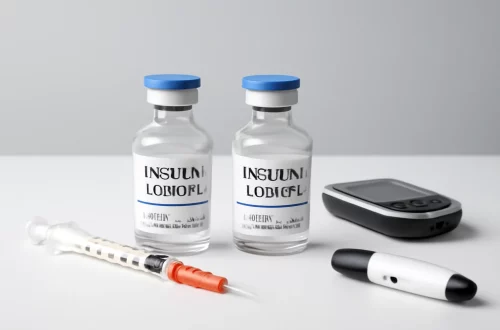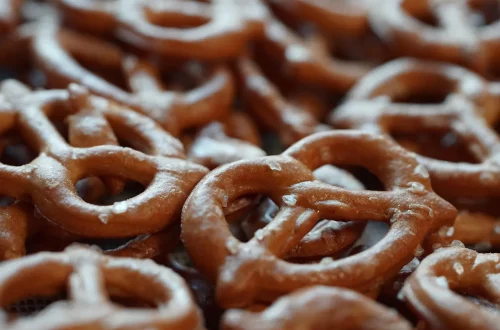
Top 10 Best Dog Food Options for Your Maltipoo
Maltipoos, a delightful mix of Maltese and Poodle, have become increasingly popular among dog lovers due to their charming personalities and adorable appearance. As a hybrid breed, they combine the best traits of both parent breeds, resulting in a small dog that is affectionate, intelligent, and highly trainable. However, like all dogs, Maltipoos require a balanced and nutritious diet to thrive and maintain their health. Choosing the right dog food can be a daunting task, given the plethora of options available on the market today.
When selecting food for your Maltipoo, it is essential to consider factors such as age, weight, and activity level. Puppies have different nutritional needs compared to adult dogs, and so do seniors. The right ingredients can help support their energy levels, skin health, and overall well-being. Moreover, Maltipoos can be prone to certain health issues, making it crucial to provide them with high-quality nutrition that caters to their specific needs.
In this article, we will explore some of the best dog food options for your Maltipoo, focusing on high-quality ingredients, balanced nutrition, and the unique dietary requirements of this delightful breed. By understanding the various factors that contribute to a healthy diet, you can ensure your furry friend enjoys a long, happy, and healthy life.
High-Quality Ingredients Matter
When it comes to dog food, quality is paramount. For Maltipoos, selecting a food that features high-quality ingredients can significantly impact their health and well-being. Look for dog foods that list real meat as the first ingredient, such as chicken, beef, or fish. These proteins are essential for muscle development and overall energy levels.
In addition to protein, Maltipoos require healthy fats, such as omega-3 and omega-6 fatty acids, to support skin and coat health. Ingredients like fish oil or flaxseed can provide these essential fatty acids, promoting a shiny coat and reducing the likelihood of skin irritations. Furthermore, whole grains like brown rice or oats can supply energy while being gentle on their digestive systems.
Fruits and vegetables should also be included in their diet, as they provide important vitamins and minerals. Ingredients like sweet potatoes, blueberries, and carrots can enhance their immune system and overall vitality. It is essential to avoid dog foods containing fillers or artificial preservatives, as these can lead to health issues over time.
Moreover, understanding the specific dietary needs of Maltipoos can guide you in selecting the best food. For instance, because they are a small breed, they may benefit from kibble designed for smaller dogs, which is easier for them to chew and digest.
Choosing high-quality dog food that prioritizes real ingredients can help your Maltipoo maintain a healthy weight, vibrant coat, and overall well-being, ensuring they lead a happy and active life.
Age-Specific Nutritional Needs
Maltipoos, like all dogs, have different nutritional requirements depending on their age. Puppies, adults, and senior dogs each have unique dietary needs that should be addressed with appropriate dog food formulations.
For Maltipoo puppies, it is vital to choose a high-quality puppy food that is rich in protein and designed to support growth and development. Puppy foods typically contain higher levels of calories, proteins, and essential nutrients to fuel their rapid growth. Look for formulations that include DHA, an omega-3 fatty acid crucial for brain and eye development.
As your Maltipoo matures into adulthood, their nutritional needs will change. Adult Maltipoos require balanced nutrition that supports their energy levels and maintains a healthy weight. Adult dog food should contain a proper ratio of protein, fats, and carbohydrates to provide sustained energy throughout the day.
It is important to monitor your Maltipoo’s weight and adjust their food intake accordingly, especially as they transition into their senior years. Senior Maltipoos may benefit from dog food specifically formulated for older dogs, which often contains fewer calories and more fiber to support digestion and maintain a healthy weight. These foods may also include supplements for joint health, addressing common issues that older dogs face.
By understanding the age-specific nutritional needs of your Maltipoo, you can select the right food that supports their growth, maintains their health, and enhances their quality of life throughout every stage.
Grain-Free vs. Grain-Inclusive Diets
The debate between grain-free and grain-inclusive diets for dogs has gained significant attention in recent years. While some dog owners advocate for grain-free options, it is essential to understand the pros and cons of both diets, especially when considering the unique needs of your Maltipoo.
Grain-free dog foods typically replace traditional grains like wheat and corn with alternative sources of carbohydrates, such as sweet potatoes, peas, or lentils. Proponents of grain-free diets argue that many dogs have sensitivities to grains and that removing them can improve digestion and reduce the risk of allergies. For some Maltipoos, particularly those with a history of food sensitivities, a grain-free diet may be beneficial.
However, it is important to note that not all dogs require a grain-free diet. Many dogs, including Maltipoos, can digest grains without any issues. Whole grains like brown rice, barley, and oats are excellent sources of carbohydrates and provide essential nutrients. They can contribute to energy levels and promote healthy digestion. Additionally, whole grains are often more affordable than grain-free options, making them a practical choice for many pet owners.
When considering a grain-free or grain-inclusive diet for your Maltipoo, it is crucial to consult with your veterinarian. They can help determine the best diet based on your dog’s specific health needs, allergies, and lifestyle. Ultimately, whether you choose grain-free or grain-inclusive food, prioritize high-quality ingredients and balanced nutrition to ensure your Maltipoo remains happy and healthy.
Understanding Dog Food Labels
Navigating the pet food aisle can be overwhelming, especially with the myriad of dog food brands and formulations available. Understanding dog food labels is essential for selecting the best food for your Maltipoo.
The ingredient list is one of the most crucial aspects of any dog food label. Ingredients are typically listed in descending order by weight, meaning the first few ingredients are the primary components of the food. Look for real meat, whole grains, and natural ingredients at the top of the list. Avoid foods that list by-products or fillers as the main ingredients, as these can indicate lower quality.
Additionally, pay attention to the guaranteed analysis section of the label, which provides information on the nutritional content of the food, including protein, fat, fiber, and moisture levels. Ensure that the food meets the nutritional standards set by the Association of American Feed Control Officials (AAFCO). Foods that meet these standards have undergone rigorous testing and are deemed nutritionally adequate for your dog.
It is also beneficial to consider the brand’s reputation and commitment to quality. Research the company’s sourcing practices, manufacturing processes, and any recalls or safety issues. A reputable brand will prioritize transparency and provide information about their ingredients and production methods.
By understanding dog food labels, you can make informed decisions about your Maltipoo’s nutrition, ensuring they receive the best possible diet for their health and happiness.
In conclusion, choosing the right dog food for your Maltipoo is essential for their health and well-being. By considering high-quality ingredients, age-specific needs, dietary preferences, and understanding food labels, you can provide your furry friend with the nutrition they need to thrive. Always consult with your veterinarian for personalized advice regarding your Maltipoo’s diet and any health concerns.
*Please note that this article does not constitute medical advice. For any health issues or concerns regarding your pet, always consult with a veterinarian.*




